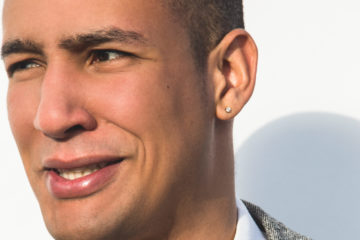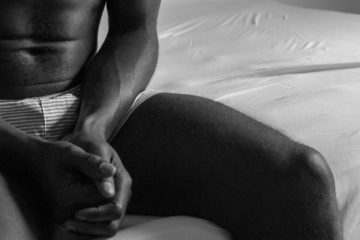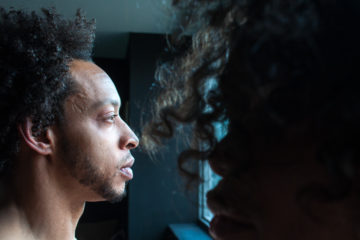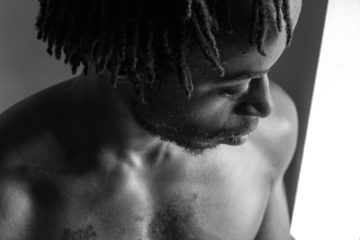Although it can slide off someone’s lips as easy as any compliment, hearing the word “faggot” stings like yellow jackets. Whether you bear it in silence or lash out violently, it’s a reminder that masculinity isn’t a birthright, but something people can question and strip away against your will. Kurush knows its damage firsthand. However, he shows us that the antidote to the other f-word isn’t to fight harder against it, but to be you, no matter what.
In my younger years, people used the words “faggot” and “gay” as nicknames for me. I didn’t know what to do about it. I thought it was wildly annoying. It actually affected me up until college, and even recently. It made me question my sexuality. I never really had an attraction to guys, but I was afraid of it because I had always been called that for so many years. Getting into the modeling industry was one of the first steps to conquering that fear.
Guys would come on to me often and it was annoying. That helped me to get over it. I would look around and see where my eyes were being drawn. I kept solace in the fact that they were always drawn to women. As a result, I was able to be comfortable in my own skin, despite the fact that in my culture homophobia and the fear of being looked at as being gay is real.
One of the ways this negatively affected me was in a past relationship with girlfriend who had grown up with a lot of hyper-masculine men. Because based on her own upbringing men acted a certain way–and there were things you did and didn’t do–we had a lot of arguments about certain things I did that she felt were effeminate, such as complaining or voicing my fears.
She saw that complaining as “bitching,” and that hurt me a lot. When she brought that to my attention, it angered me. I was surprised because she wasn’t even that type, and she was a woman. But we were both eventually able to talk and work through it. As a result, our own understanding of masculinity and femininity evolved.
There have also been moments when my male friends have had to step out of their own comfort zone, when it came to their own beliefs around masculinity and sexuality. For example, one of my ex-girlfriends was bisexual and very much LGBTQ friendly. So when we went to the NYC Pride parade, we invited two of my closest male friends who weren’t gay. They came, but it was very clear by the look on their faces that they were just scared. They weren’t trying to hurt anyone or put anyone down, they were actually afraid.
Seeing that in them opened my eyes to myself; I remembered what it felt like to go through that discomfort and fear. Eventually, both of them came to terms with that fear and were able to move past it, especially when one of them ended up dating a girl who had two moms. It was a powerful thing to see, and it taught me the power of being comfortable in your kin.
I would voice my fears and she saw that complaining as “bitching,” which hurt me a lot…But we were both eventually able to talk and work through it…As a result, our own understands of masculinity and femininity evolved.
These days, universities are falling all over https://domyhomework.guru/ themselves to build up their offerings of online courses.
















